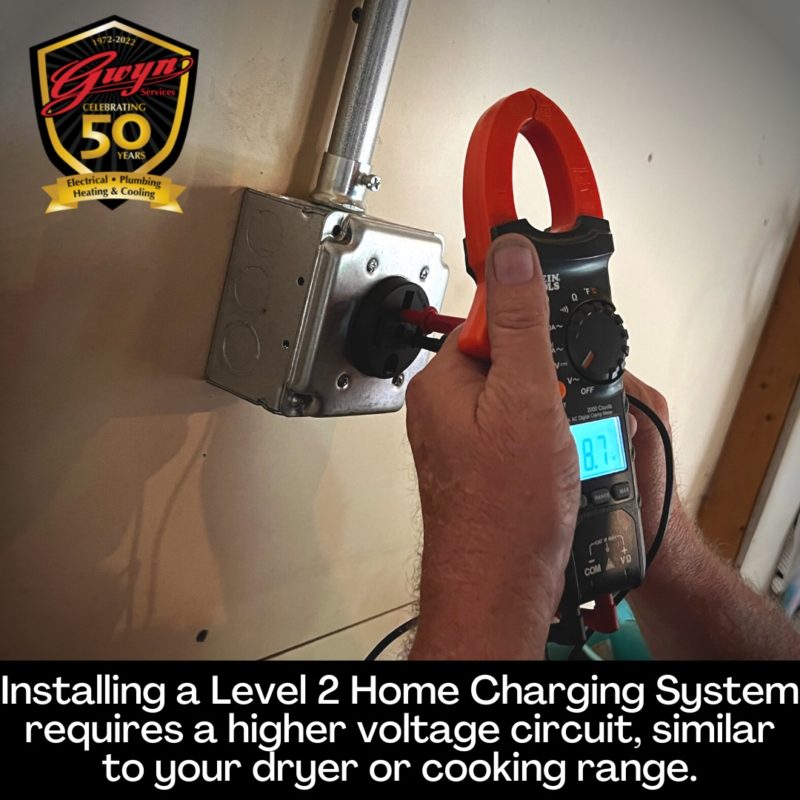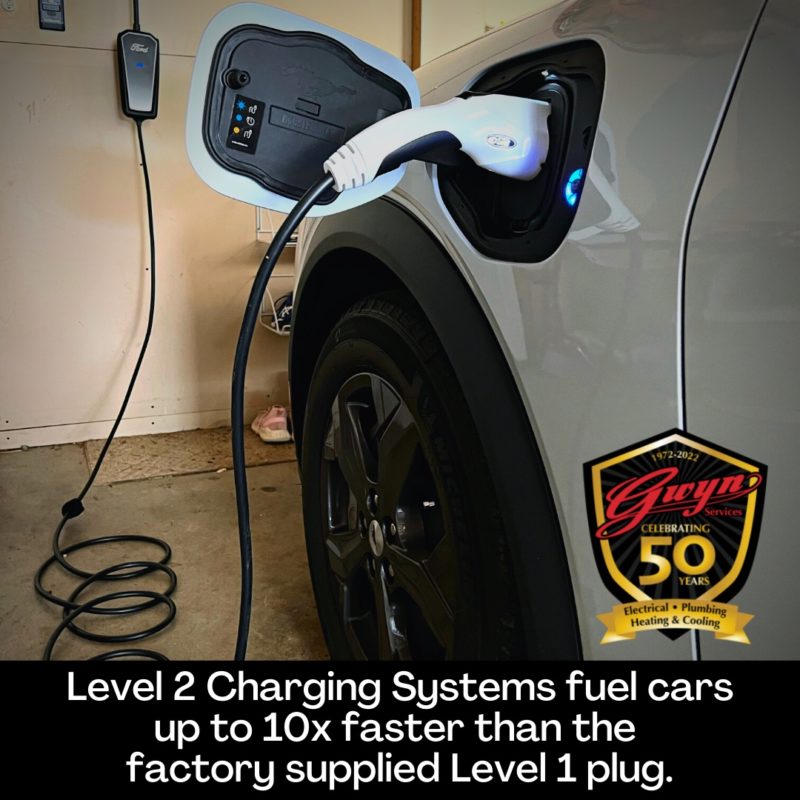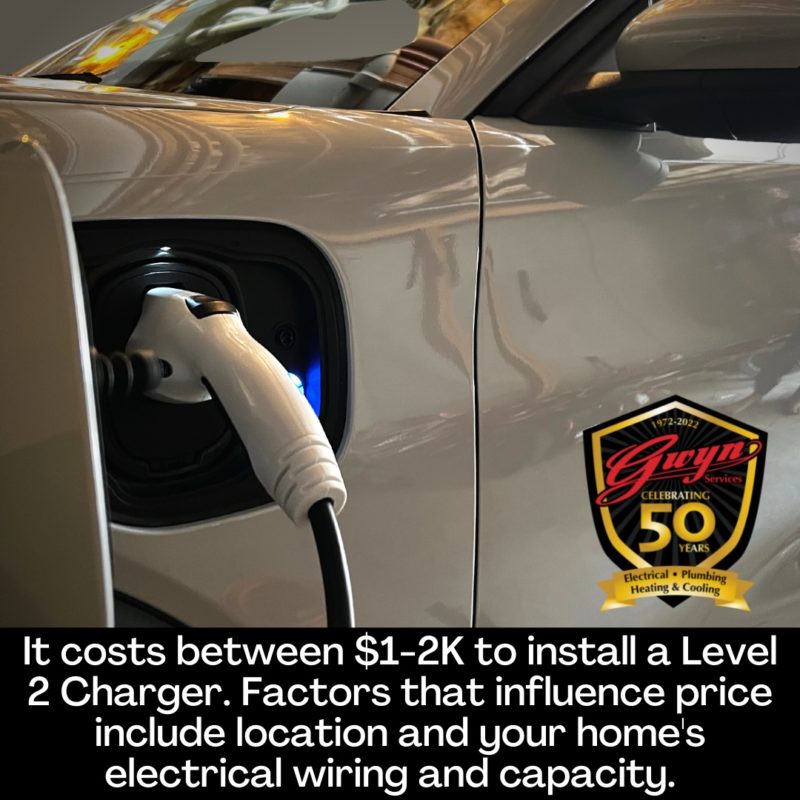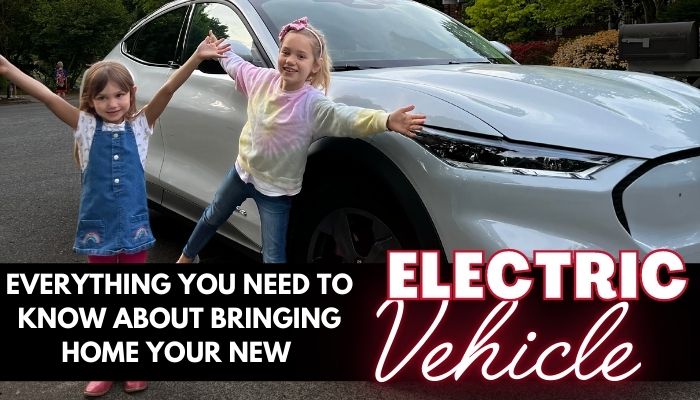Bringing Home Your New Electric Vehicle
Gas prices are high these days – it’s practically all anyone is talking about. Along with that, demand for Electric Vehicles (EVs) is skyrocketing. As of January of 2022, there were 30,000 zero-emission vehicles registered here in NC. But, this is the year that the market has broken open. There are over 30 models of electric vehicles available to purchase, and most have a months-long waiting list.
While these electric vehicles vary in capacity, range, and features, one thing remains constant: they are all charged and powered through the electrical grid and/ or photovoltaic solar grids. This means that powering up your car can be cheaper and less variable than watching the numbers climb at the gas station.
As you consider a potential Zero-Emissions Vehicle purchase, there are things to research beyond the make and model of your car. Since most EVs are charged primarily at home, it’s important to understand the process. In addition, it helps to understand the expense, and other facts surrounding home charging systems.

All electric vehicles come equipped with two levels of charging.
Level One charging is simply plugging your vehicle in to a traditional electric outlet in your home. This is clearly simple, but this form of charging has some disadvantages as well. Level One (120v) currents only have the capacity to charge a car 3-5 miles worth per hour. Also, if there are other appliances or energy users on the same circuit, charging your car can often flip the breaker.
Level Two Charging Systems can be installed at your home to enable faster, more efficient charging. When an EV is plugged into a Level Two charger, it typically charges at a rate of up to 60 miles per hour. However, these charging systems must be purchased separately. It is recommended that they are installed by a licensed electrician. In addition, these charging stations work off of a higher voltage (208-240v) circuit similar to your clothes dryer or cooking range.

The cost to install a charging system depends on several factors
Most home charging station installs cost between $900 and $1750. This is a price that many EV owners believe is worth the convenience and efficiency. It may seem that installing a charging system would be a flat rate project, but there are several factors that can influence the price tag. Your installation will cost more if your parking spot is not located near your breaker box. It will also increase your cost if your current electrical system does not have open breakers. Lastly, if your upgrade requires repositioning other wiring or running lines through walls, this will affect your cost. Typically, the customer purchases the EV charging system from their car dealer. This helps to ensure that they have the best system for their particular vehicle. (This can also be a bargaining chip in your auto purchasing process!)

Other things to consider for Electric Vehicles:
All Level One and Level Two chargers are universal for all vehicle makes and models. The Tesla Supercharger stations and Ford Connected Charge Stations are currently exclusive to their respective vehicles. However, there is an adapter that can be purchased to allow any car to charge at a Tesla Charging station.
Any licensed electrician can install an EV charger, but not all electricians are equally capable. Be sure your electrician is trained and up to date with the most current developments in the electric vehicle market. When you contact a potential installer, make sure they are experienced and knowledgeable about home charging stations. Tesla keeps a list of electricians that have completed their certification process, but other vehicle manufacturers do not yet provide this service.
While zero-emissions vehicles get a lot of press and attention from politicians, there are not currently any rebates or tax incentives for their purchase. Governor Cooper has announced Executive Order 246 in January 2022, setting a goal that half of new vehicles sold by 2030 would be Electric Vehicles. The National Build Back Better Bill passed in November 2021. It seems as if NC will have access to over $109 million over the next 5 years to build up EV infrastructure. While none of these may have a direct impact on your vehicle’s price tag, it seems as if we are going to see a continued major shift towards low emission vehicles. In return, this will make driving your EV safer and more convenient by the month!

Gwyn Services & Your Electric Vehicle
Gwyn Services is the only Tesla-certified installer in Winston-Salem. We are working hard to keep up with all the emerging information on all EV makes and models. We install home charging stations frequently, averaging 4 per week in 2022! Give Gwyn a call today to learn more (336) 774-1818.
- Today’s blog is by Guest Blogger Marissa Joyce, sponsored by Gwyn Services
Want to see more blogs like this and also get notifications on local events and happenings? Subscribe to our free weekly newsletters here.







